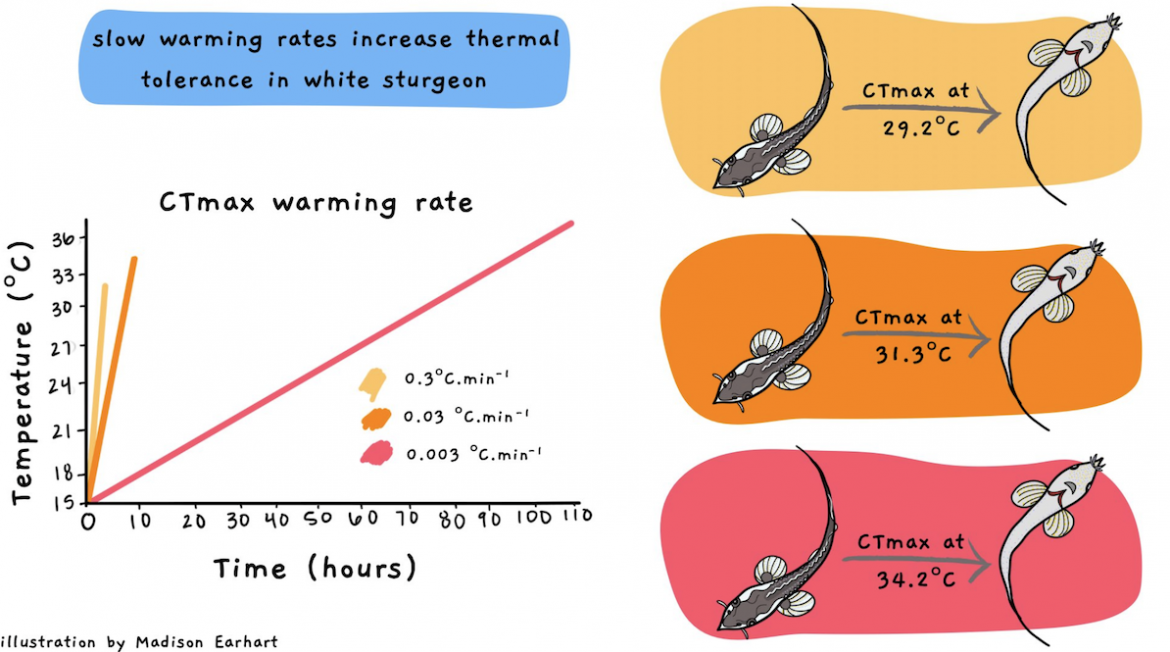
Abstract
Freshwater fish such as white sturgeon (Acipenser transmontanus) are particularly vulnerable to the effects of anthropogenically induced global warming. Critical thermal maximum tests (CTmax) are often conducted to provide insight of the impacts of changing temperatures; however, little is known about how the rate of temperature increase in these assays affects thermal tolerance. To assess the effect of heating rate (0.3°C/min, 0.03°C/min, 0.003°C/min) we measured thermal tolerance, somatic indices, and gill Hsp mRNA expression. Contrary to what has been observed in most other fish species, white sturgeon thermal tolerance was highest at the slowest heating rate of 0.003°C/min (34.2 °C, and CTmax of 31.3 and 29.2 °C, for rates 0.03 and 0.3°C/min, respectively) suggesting an ability to rapidly acclimate to slowly increasing temperatures. Hepatosomatic index decreased in all heating rates relative to control fish, indicative of the metabolic costs of thermal stress. At the transcriptional level, slower heating rates resulted in higher gill mRNA expression of Hsp90a, Hsp90b, and Hsp70. Hsp70 mRNA expression was increased in all heating rates relative to controls, whereas expression of Hsp90a and Hsp90b mRNA only increased in the two slower trials. Together these data indicate that white sturgeon have a very plastic thermal response, which is likely energetically costly to induce. Acute temperature changes may be more detrimental to sturgeon as they struggle to acclimate to rapid changes in their environment, however under slower warming rates they demonstrate strong thermal plasticity to warming.